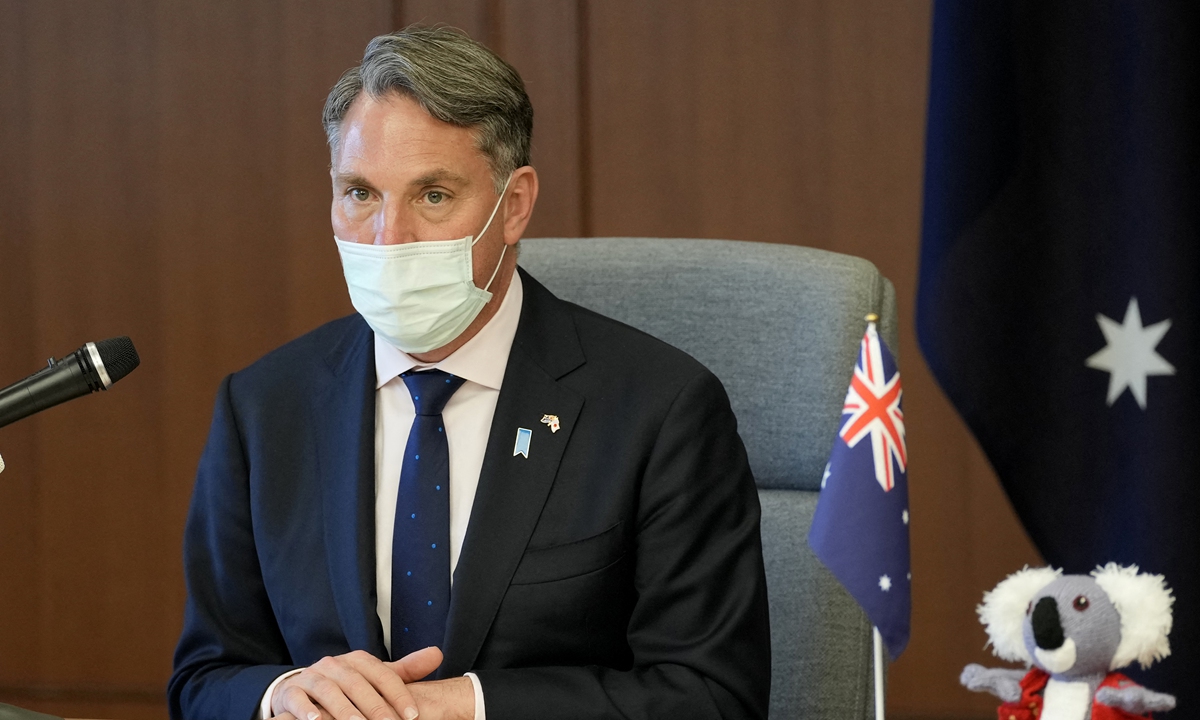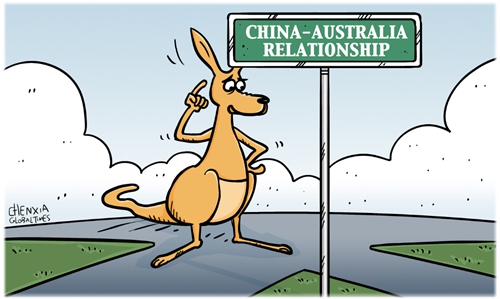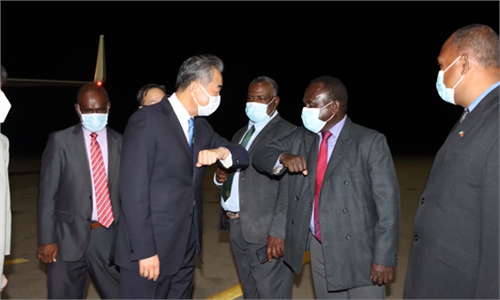
Australian Defense Minister Richard Marles Photo: AFP
Since Australian Prime Minister Anthony Albanese took office, Chinese and Australian senior officials have recently held a series of interactions. Australian Foreign Minister Penny Wong said on Friday that a meeting with Chinese State Councilor and Foreign Minister Wang Yi was "a first step towards stabilizing the relationship." This has triggered wider discussions on whether the two countries are about to reset their relations. But Australian Defense Minister Richard Marles' latest remarks seem to be at odds with such a prospective atmosphere.Speaking in Washington on Monday, Marles called for the US to expand its military presence in the Indo-Pacific, warning that a failure to maintain the balance of power in the region could be "catastrophic," according to Bloomberg. A recent ABC News report said Marles also claimed that China was engaging in the biggest military build-up since the end of World War II.
"Marles' lines aim to offer convenience at a military level to the US and serve Washington's Indo-pacific Strategy. Australia now attaches great importance to cooperation under the framework of the AUKUS military alliance. So it keeps hyping up the threat of China as a major rival to AUKUS, hoping that the US will station more troops in Australia," Wei Dongxu, a Beijing-based military analyst, told the Global Times.
"It is the US and Australia which are the main source of threats in the Indo-Pacific. The AUKUS has the appetite for military intervention in both the Pacific and the Indian oceans. They are the destroyers of regional peace," noted Wei.
There are many Australian scholars who have discussed how to reset the China-Australia relationship. Hugh White, Emeritus Professor of Strategic Studies at the Strategic and Defence Studies Centre, Australian National University, suggested in a recent article that stepping back from conducting maritime patrols in the waters close to China may be one of the concessions Canberra will find itself choosing to make as it learns to live with the realities of China's power.
As to whether it will become one of Canberra's options, Wei noted that Australia's overall strategy is not up to itself, but is too much influenced by the US and needs to fully cooperate with the Pentagon. Thus, it is less likely that this attitude will be completely reversed. It's better for Australia to be more autonomous in its foreign strategy and policies, working from its own strategic goals, rather than totally adhering to the US. It will be quite difficult for Canberra to improve relations with other countries if it remains subject to Washington in terms of military and foreign strategy.
In general, Chen Hong, president of the Chinese Association of Australian Studies and director of the Australian Studies Centre at East China Normal University, said that the new Albanese government still has the will to improve relations with China, bringing a hope of improvement to China-Australia relations, but the outlook still remains quite uncertain.
It is obvious that the degree of the new Australian government's hostility toward China has perceptibly declined in both rhetoric and specific moves compared with its predecessor, especially the bellicose remarks of former defense minister Peter Dutton. But on the whole, the Albanese government has not yet come out of the shadow of its predecessor, and is still on the track of serving the US anti-China strategy. The new leadership team has to look to the right direction for the sake of its own national interests.
The author is a reporter with the Global Times. opinion@globaltimes.com.cn


